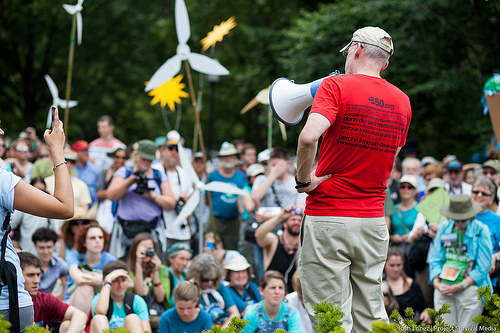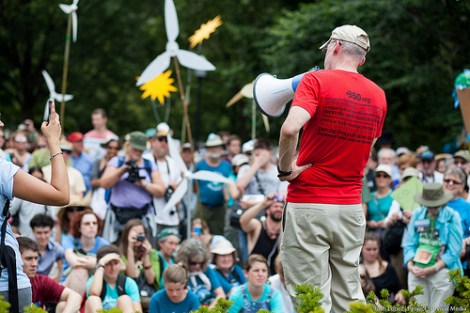At the Guardian, Nafeez Ahmed, executive director of the Institute for Policy Research & Development, has an idea about what might be driving the massive expansion of the NSA’s domestic surveillance program that we’ve learned so much about lately. It’s not concerns about religious fundamentalists who hate America. Instead, he suggests, the government is worried about environmental activism:
But why have Western security agencies developed such an unprecedented capacity to spy on their own domestic populations? Since the 2008 economic crash, security agencies have increasingly spied on political activists, especially environmental groups, on behalf of corporate interests. This activity is linked to the last decade of US defence planning, which has been increasingly concerned by the risk of civil unrest at home triggered by catastrophic events linked to climate change, energy shocks or economic crisis — or all three.
Who would have thunk? It turns out the U.S. government is worried about climate change, after all. At least if being worried about climate change lets them use all their cool spy gear.
Across the government, security professionals are fretting about natural disasters and global oil shortfalls, Ahmed explains. The Department of Defense has written that “climate change, energy security, and economic stability are inextricably linked.” They’re nervous about what this means: What are people going to do when they realized they’re, to use the technical term, totally screwed? The Army’s Strategic Studies Institute has suggested that, in the case of a total freak-out, it might be necessary to “use of military force against hostile groups inside the United States.”
Who are those hostiles? Why, they might just be environmentalists.
The government tends to see environmentalists in one of two ways. They’re either harmless hippie treehuggers who can easily be ignored or dangerous eco-terrorists who need to be watched. The defense and intelligence people incline toward the latter view.
As early as 2008, DHS contractors were looking into environmental action and “labeled environmental organizations like the Sierra Club, the Humane Society and the Audubon Society as ‘mainstream organizations with known or possible links to eco-terrorism.'” And as Adam Federman has been documenting, law enforcement and corporations have been spying on environmentalists who are fighting against fracking and tar-sands development, even infiltrating direct action groups like the Great Plains Tar Sands Resistance.
This isn’t just a problem in the United States, as Ahmed points out:
[I]nternal police documents obtained by the Guardian in 2009 revealed that environment activists had been routinely categorised as “domestic extremists” targeting “national infrastructure” as part of a wider strategy tracking protest groups and protestors.
Ahmed’s article mainly establishes that the government has concerns about political groups of various stripes, and also worries about the effect of an oil shortfall on society — in other words, it’s pretty far from an irrefutable case that the NSA is primarily targeting environmentalists. But we’re just saying, if you signed up for any of Grist’s newsletters (thanks!), Barack Obama probably is reading your email. Say hi from us!




